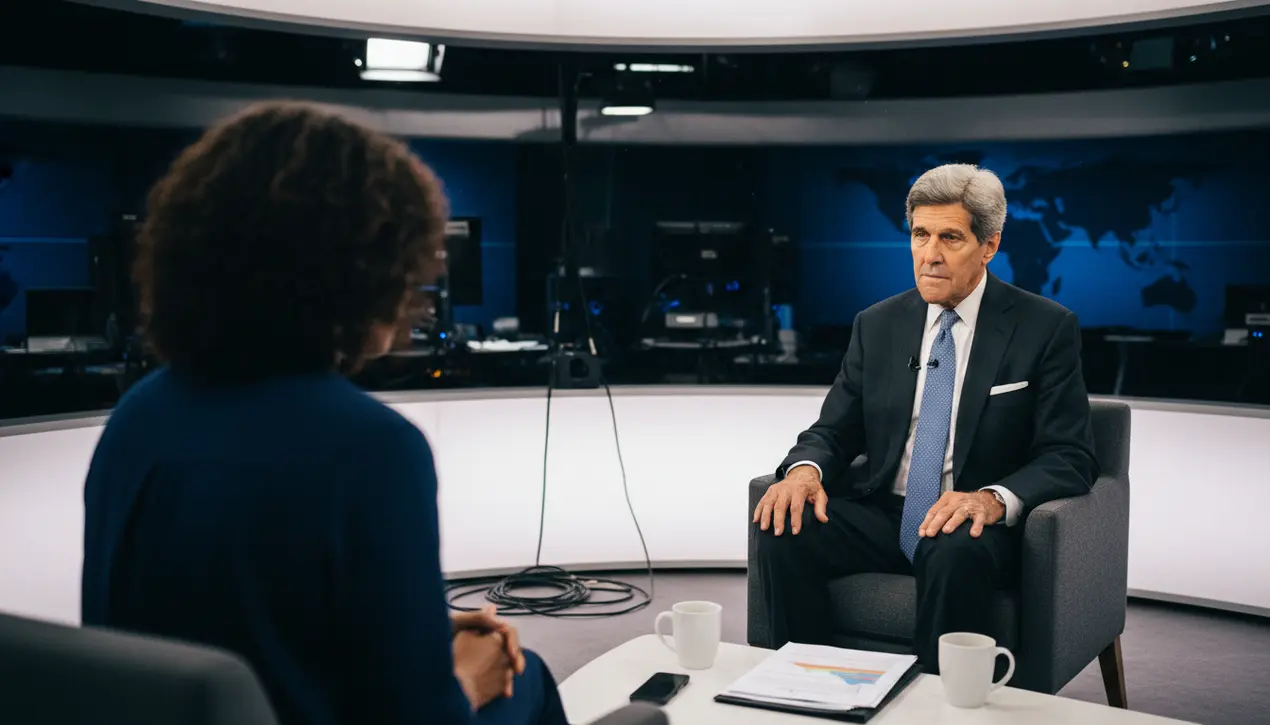
Scienceclimate scienceClimate Conferences
COP30 Studio Sessions: High-Level Interview with John Kerry
RA
Rachel Adams
3 hours ago7 min read
In the high-stakes theater of global climate diplomacy, few stages are as consequential as the COP30 studio sessions, where former US climate envoy John Kerry sat for a frank and far-reaching interview that laid bare both the precarious progress and profound challenges in our planetary struggle. With the grim shadow of last year’s UN emissions gap report looming—the one that declared the world was on track to heat a catastrophic 2.9°C above pre-industrial levels—Kerry’s words carried the weight of a man who has navigated the tortuous corridors of power from the Bonn climate talks to the breakthrough of the Paris Agreement. He spoke not just of abstract targets, but of the visceral reality of coral reefs bleaching into skeletal white graveyards and the increasing frequency of climate-fed megafires and superstorms that are now costing the global economy over $300 billion annually.The conversation inevitably turned to the fragile consensus of the Glasgow pact, where the phrase ‘phase down’ coal was hammered out in overtime, a diplomatic victory that feels increasingly fragile as emerging economies rightly demand financial justice and historical emitters like the United States and the European Union struggle to marshal the promised $100 billion in annual climate finance. Kerry, with the weary authority of a veteran, dissected the geopolitical friction points, from India’s justifiable energy security concerns to China’s paradoxical status as both the world’s largest installer of renewable energy and its biggest builder of new coal plants, a duality that threatens to undo any collective progress.He pointed to the sobering data from the International Energy Agency, which shows that while renewables are expanding at a record clip, global fossil fuel emissions still hit an all-time high last year, a stark testament to the implementation gap between pledge and action. Beyond the grim statistics, however, was a thread of cautious optimism, a belief in the tectonic shift occurring within the global financial system, where institutions like the Glasgow Financial Alliance for Net Zero are mobilizing trillions of dollars in private capital, and technologies from green hydrogen to next-generation geothermal are reaching commercial viability.Yet, as a biologist who has watched ecosystems unravel, I found his most poignant reflection was on the non-negotiable laws of biophysics; diplomacy can delay, but it cannot repeal the fundamental chemistry of a warming atmosphere, and the window to preserve functioning ecosystems—from the Amazon’s hydrological cycle to the Arctic’s ice-albedo feedback—is closing faster than our political processes can respond. The interview was less a policy briefing and more a dispatch from the front lines of a species-level crisis, a reminder that the outcome of these studio sessions will be written not in communiqués, but in the survivability of coastlines, the stability of our food systems, and the very livability of our shared planet.
#climate change
#COP30
#John Kerry
#diplomacy
#global warming
#featured
Stay Informed. Act Smarter.
Get weekly highlights, major headlines, and expert insights — then put your knowledge to work in our live prediction markets.
Comments
Loading comments...
© 2025 Outpoll Service LTD. All rights reserved.